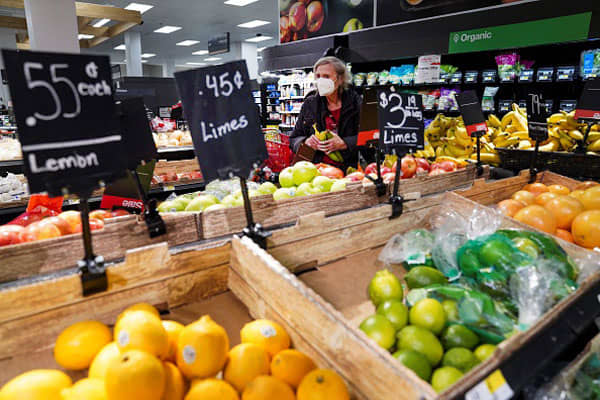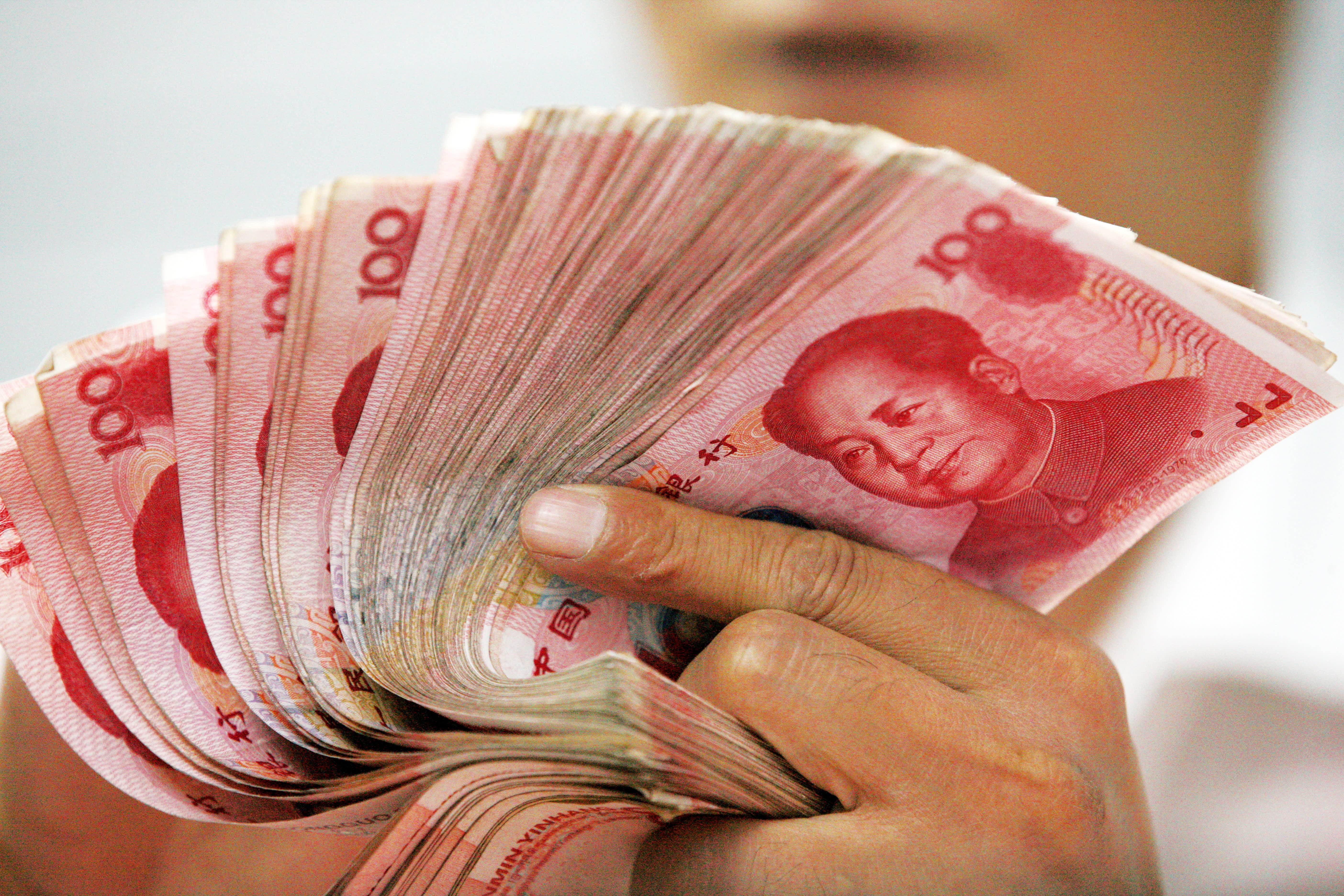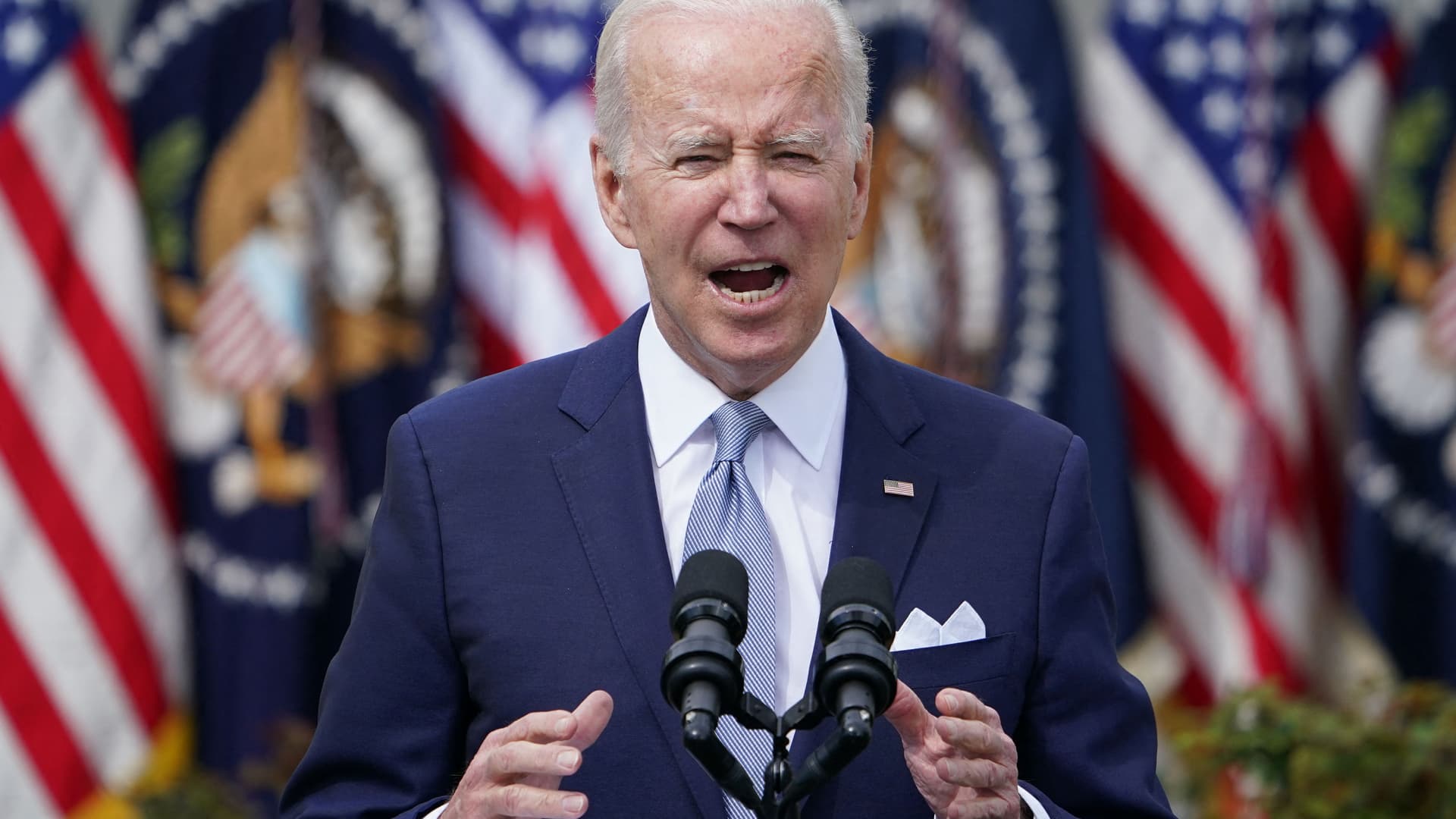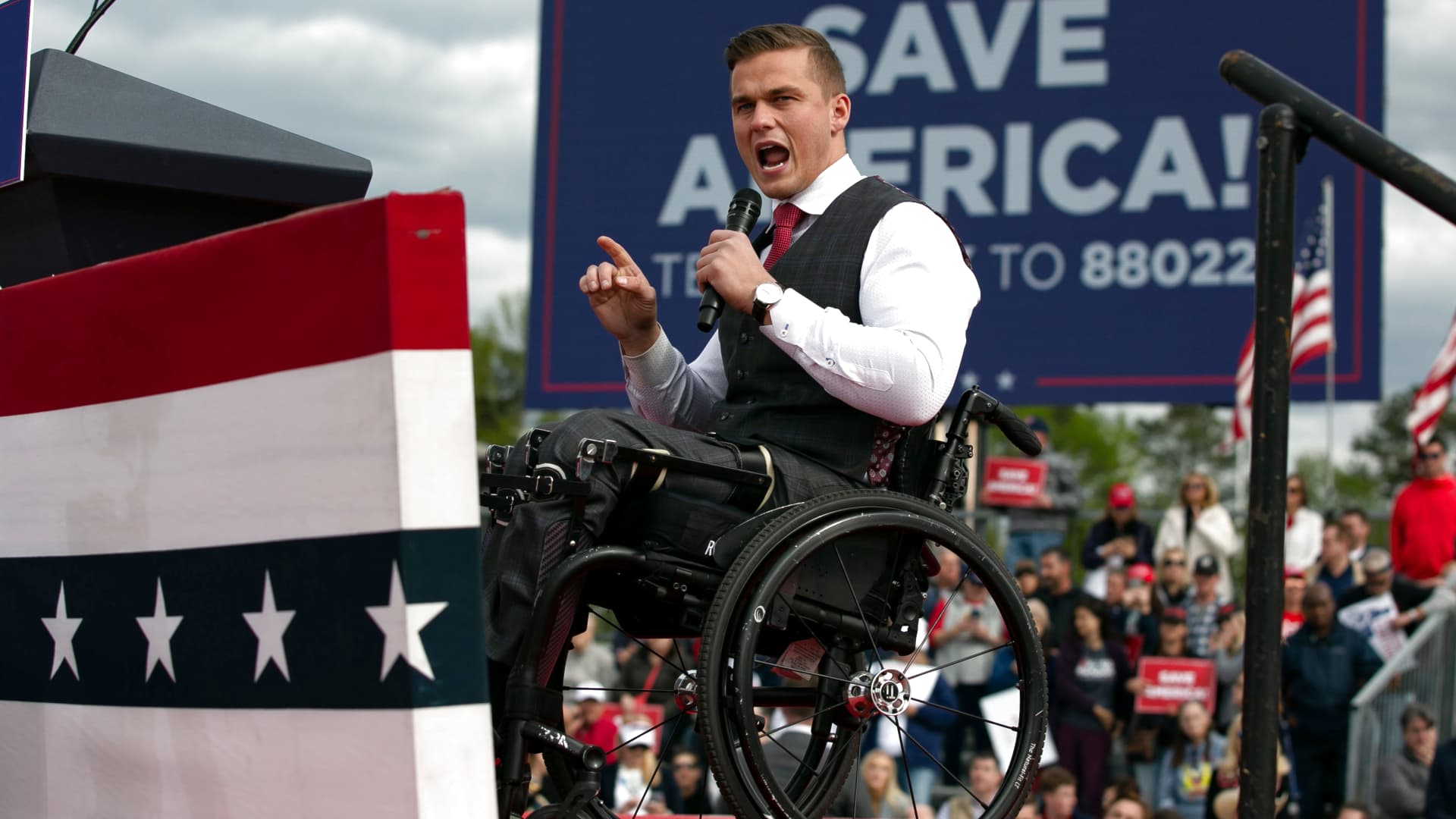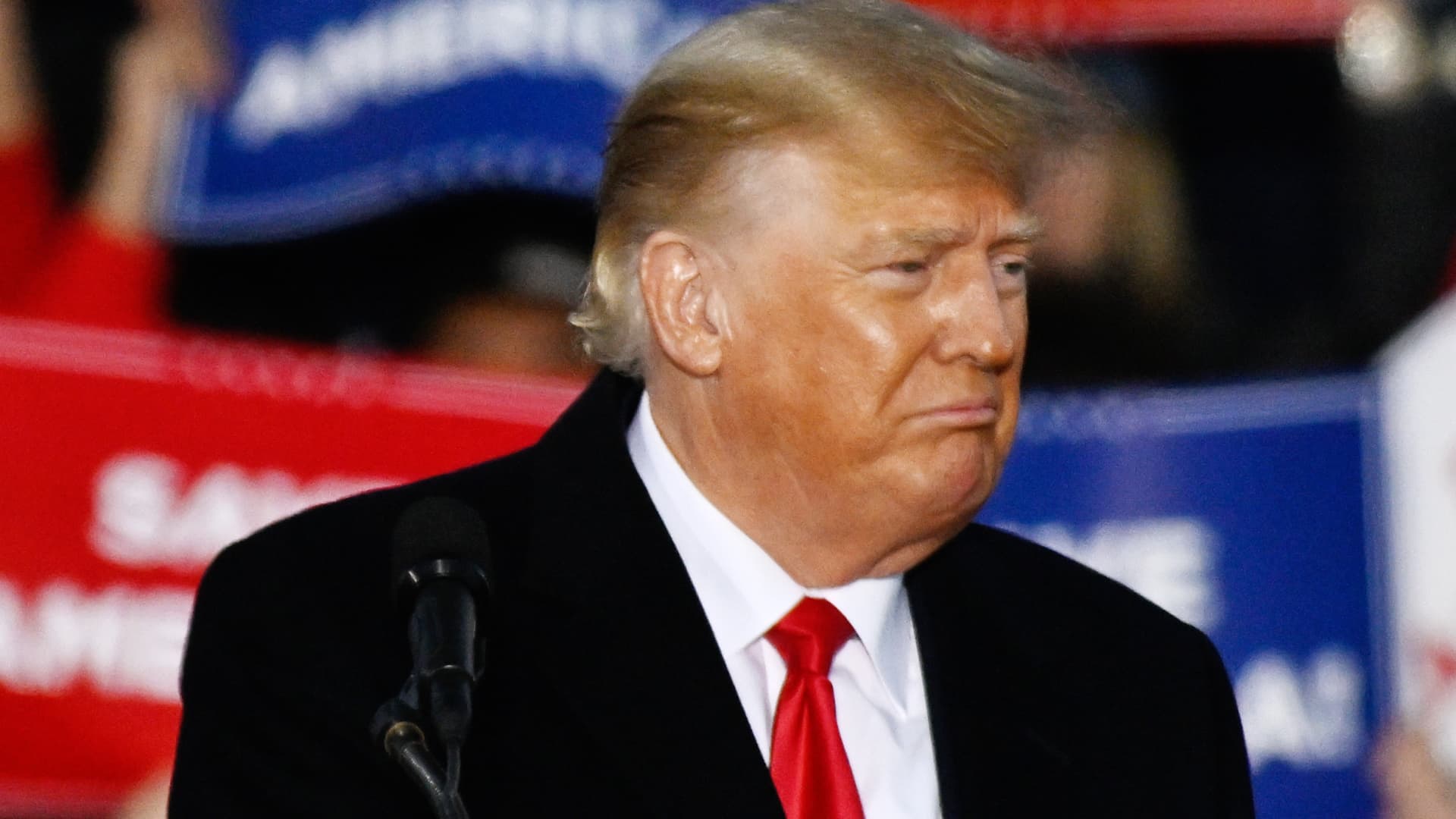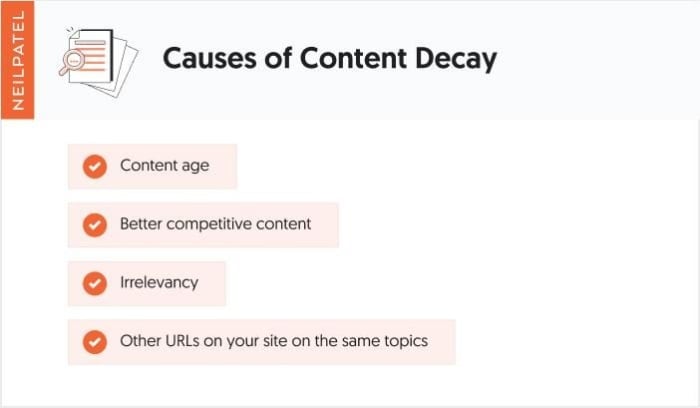Jailed Putin opponent Alexei Navalny has died, Russian media says
Navalny, 47, was an anti-corruption campaigner and one of Russian President Vladimir Putin's most vocal critics.


Imprisoned Russian opposition politician Alexei Navalny has died, Russian state news agency Tass reported on Friday, citing the prison service of the Yamalo-Nenets region where he had been serving his sentence.
The prison service reportedly said the cause of Navalny's death was still to be established.
Alexey Navalny's spokesperson, Kira Yarmysh said in a Google-translated update on the X social media platform that "We don't have any confirmation of this yet. Alexey's lawyer is now flying to Kharp. As soon as we have any information, we will report it."
CNBC could not independently verify the report.
Navalny, 47, was an anti-corruption campaigner and one of Russian President Vladimir Putin's most vocal critics. He was serving a 19-year jail term on charges of extremism.
Navalny "felt unwell after a walk, almost immediately losing consciousness," Interfax reported, citing a statement from the office for the prison service of the Yamalo-Nenets region.
The statement said "all the necessary resuscitation measures were carried out, but did not yield positive results." It added that an ambulance was called and emergency doctors later confirmed Navalny's death.
The Investigative Department of the Investigative Committee of Russia for the Yamalo-Nenets Autonomous Okrug region said Friday on Telegram that it is organizing a procedural check into the death of Navalny, according to a Google-translated post.
Russian opposition leader Alexei Navalny is seen on a screen via video link from the IK-2 corrective penal colony in Pokrov before a court hearing to consider an appeal against his prison sentence, in Moscow, Russia May 17, 2022.
Evgenia Novozhenina | Reuters
Navalny, who previously condemned Russia's full-scale invasion of Ukraine as "the most stupid and senseless war of the 21st century," was moved to an Arctic penal colony late last year. It is widely considered to be one of the country's toughest prisons.
Navalny has been held behind bars in Russia since 2021, after spending nearly half a year in Germany recovering from a nerve agent poisoning in August 2020.
The German government said in September 2020 that Navalny had been poisoned by a chemical nerve agent, saying a toxicology report provided "unequivocal evidence." The nerve agent was in the family of Novichok, which was developed by the Soviet Union. Toxicology tests conducted in France and Sweden also came to the same conclusion.
The Kremlin has repeatedly denied any role in Navalny's poisoning.
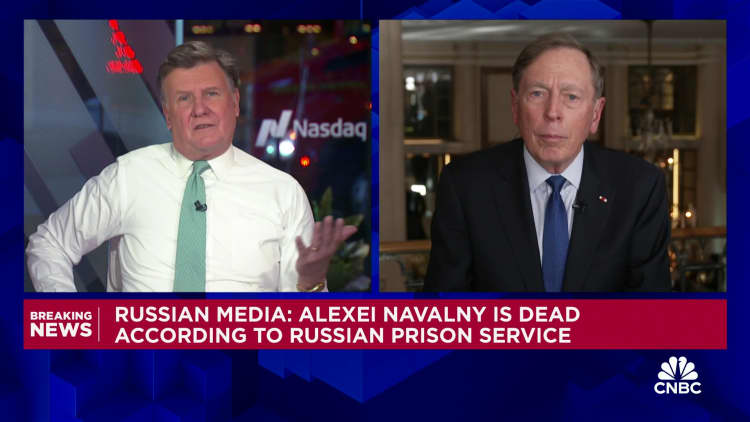
Navalny was a well-known figure in Russia and produced numerous reports on corruption that had flourished during Putin's leadership. Famously, Putin has a long-running tradition of refusing to mention Navalny by name in public — a decision the Kremlin has previously said stems from the president's views of the critic.
Navalny had sought to challenge Putin for Russia's presidency, but was barred from running against him in 2018. Putin will run for president once again next month in an election where he faces only token opposition.
World leaders react
World leaders responded to the news of Navalny's reported death by paying tribute to his courage as an anti-corruption activist and offering their condolences to his family.
NATO chief Jens Stoltenberg said he was "deeply saddened and disturbed" by the reports, while German Chancellor Olaf Scholz expressed he was "very sad." U.K. Prime Minister Rishi Sunak called news of Navalny's death "terrible."
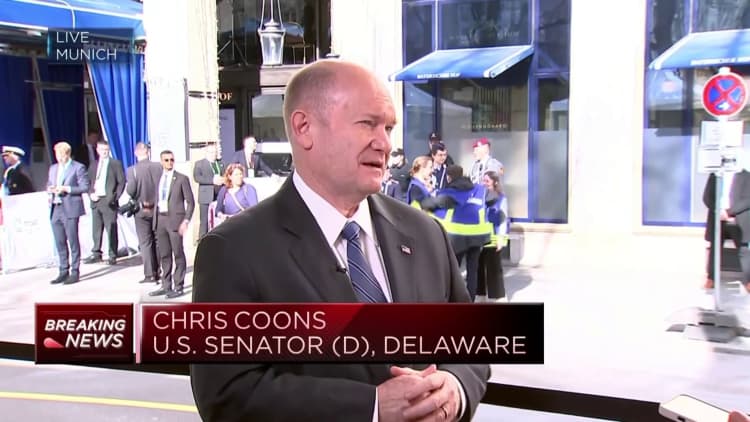
Other high-profile figures raised questions over the circumstances of Navalny's death.
In response to the comments from political leaders on Navalny's reported death, Russian Foreign Ministry spokesperson Maria Zakharova said via X, "The instant reaction of NATO leaders to the news of Alexey Navalny's demise in the form of direct accusations vs Russia is self-exposing."
She added, "No forensic medical examination data IS available, yet the West has already voiced its 'conclusions.'"

 Konoly
Konoly 







